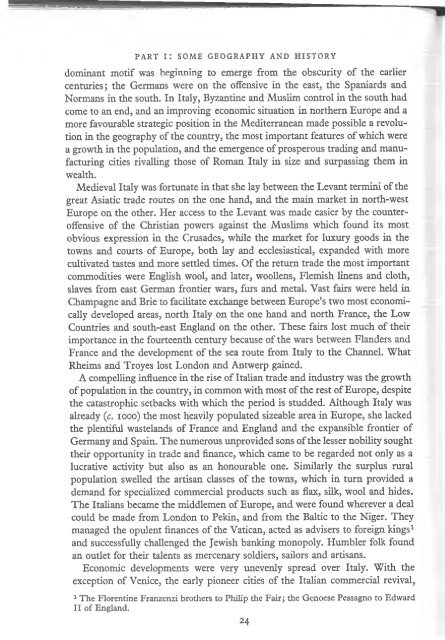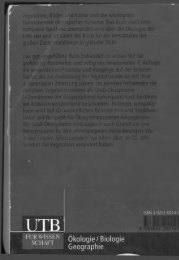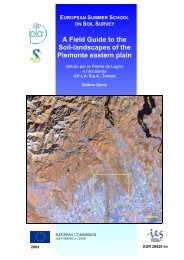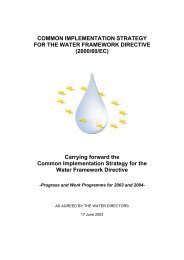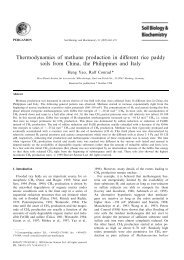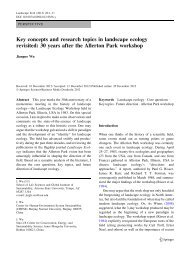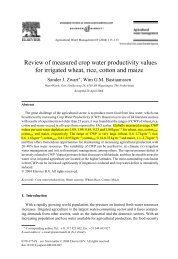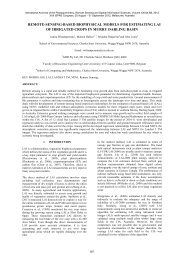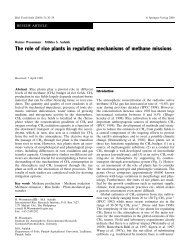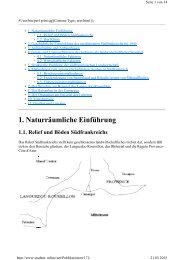Walker - 1967 - A geography of Italy
Walker - 1967 - A geography of Italy
Walker - 1967 - A geography of Italy
Create successful ePaper yourself
Turn your PDF publications into a flip-book with our unique Google optimized e-Paper software.
PART i: SOME GEOGRAPHY AND HISTORY<br />
dominant motif was beginning to emerge from the obscurity o f the earlier<br />
centuries; the Germans were on the <strong>of</strong>fensive in the east, the Spaniards and<br />
Normans in the south. In <strong>Italy</strong>, Byzantine and Muslim control in the south had<br />
come to an end, and an improving economic situation in northern Europe and a<br />
more favourable strategic position in the Mediterranean made possible a revolution<br />
in the <strong>geography</strong> <strong>of</strong> the coxmtry, the most important features o f which were<br />
a growth in the population, and the emergence o f prosperous trading and manufacturing<br />
cities rivalhng those o f Roman <strong>Italy</strong> in size and surpassing them in<br />
wealth.<br />
Medieval <strong>Italy</strong> was fortimate in that she lay between the Levant termini <strong>of</strong> the<br />
great Asiatic trade routes on the one hand, and the main market in north-west<br />
Europe on the other. Her access to the Levant was made easier by the counter<strong>of</strong>fensive<br />
o f the Christian powers against the Muslims which foimd its most<br />
obvious expression in the Crusades, while the market for luxury goods in the<br />
towns and courts o f Europe, both lay and ecclesiastical, expanded with more<br />
cultivated tastes and more settled times. O f the return trade the most important<br />
commodities were English wool, and later, woollens, Flemish linens and cloth,<br />
slaves from east German frontier wars, furs and metal. Vast fairs were held in<br />
Champagne and Brie to facilitate exchange between Europe’s two most economically<br />
developed areas, north <strong>Italy</strong> on the one hand and north France, the Low<br />
Countries and south-east England on the other. These fairs lost much o f their<br />
importance in the fourteenth century because o f the wars between Flanders and<br />
France and the development o f the sea route from <strong>Italy</strong> to the Channel. What<br />
Rheims and Troyes lost London and Antwerp gained.<br />
A compelling influence in the rise o f Italian trade and industry was the growth<br />
o f population in the country, in common with most o f the rest o f Europe, despite<br />
the catastrophic setbacks with which the period is studded. Although <strong>Italy</strong> was<br />
already (c. looo) the most heavily populated sizeable area in Europe, she lacked<br />
the plentiful wastelands o f France and England and the expansible frontier o f<br />
Germany and Spain. The numerous unprovided sons o f the lesser nobility sought<br />
their opportunity in trade and finance, which came to be regarded not only as a<br />
lucrative activity but also as an honourable one. Similarly the surplus rural<br />
population swelled the artisan classes o f the towns, which in turn provided a<br />
demand for specialized commercial products such as flax, silk, wool and hides.<br />
The Itahans became the middlemen o f Europe, and were foimd wherever a deal<br />
could be made from London to Pekin, and from the Baltic to the Niger. They<br />
managed the opulent finances o f the Vatican, acted as advisers to foreign kings ^<br />
and successfully challenged the Jewish banking monopoly. Humbler folk found<br />
an outlet for their talents as mercenary soldiers, sailors and artisans.<br />
Economic developments were very imevenly spread over <strong>Italy</strong>. With the<br />
exception o f Venice, the early pioneer cities o f the Itahan commercial revival,<br />
* The Florentine Franzenzi brothers to Philip the Fairj the Genoese Pessagno to Edward<br />
II <strong>of</strong> England.<br />
24


